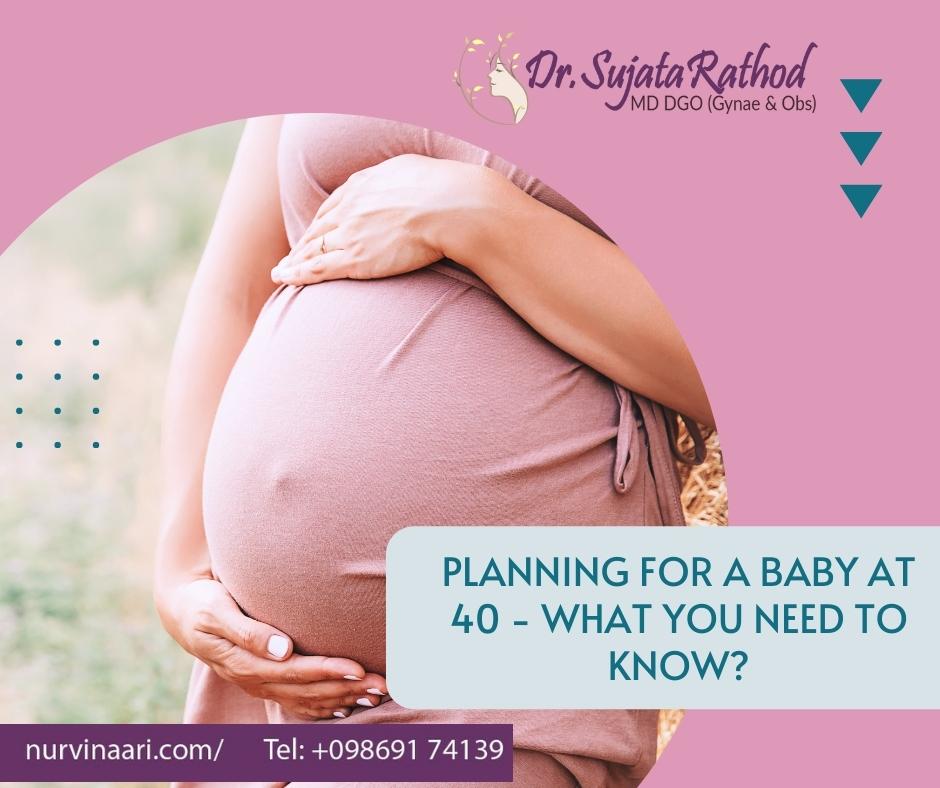
Women are always told to have a baby before they turn 35. That’s not the case these days, though. Women wait till 40 to have their first baby for many reasons. Some people want to wait until they achieve financial and emotional stability. Others settle down later in their life. Some women experience a delay in pregnancy because of fertility treatments. Gynecologists in Thane West believe that your ability to conceive declines as you reach your late 30s. That doesn’t mean you can’t get pregnant at 40. Here’s what you should know if you are planning a baby in your 40s.
Conceiving after 40
Statistically speaking, the older you get, the more difficult it is for you to conceive. That’s because the quality and number of eggs your ovaries release diminish as you age. However, many women face no difficulty in conceiving into their 40s.
The procedure is similar. You should try on the day you start ovulating. Your chances of getting pregnant decrease as you age. In fact, most women approach the best gynecologist in Hiranandani Hospital Thane for fertility treatments. Fertility treatment can differ for everyone. For some people, it means having regular intercourse. Others need in vitro fertilization.
Prepare for a Late Pregnancy
Fortunately, women in their 40s can conceive and experience a safe delivery as long as they follow preconception care instructions. Here’s how you can prepare for late pregnancy.
- Get Preconception Consultation: Women conceiving in their 40s need to plan their pregnancy a few months ahead. You should see a doctor for a medical examination. Share your medical history and your current chronic diseases. Your doctor will also check if your current medications are compatible with pregnancy and whether you should switch them.
- A Healthy and Balanced Diet: Your gynecologist and dietitian will establish a pre-pregnancy diet plan. They will also prepare a diet for the three trimesters. This diet includes the nutrients your body and the baby need to stay in good shape. Alcohol, caffeine, drugs, tobacco, and anything that might harm you and the baby are off-limits.
- Practice Exercise: Women with an active lifestyle and no chronic medical issues will have fewer complications than those living a sedentary life. While rest is important, you should keep your body moving to keep the pregnancy strain off you. Walking, swimming, and yoga are a few exercises women should consider during pregnancy.
Risks of Late Pregnancy
Pregnancy comes with risks, which most likely go up when you try to conceive later in your life. The biggest risk of late pregnancy is the existing chronic condition. Women in their 40s are at a higher risk of developing a chronic health condition than those in their 20s and 30s. Chronic diseases like diabetes, thyroid, and high blood pressure can lead to complications. There is a high risk of stillbirth, miscarriage, and infertility. Discuss your pregnancy goals and risks with a gynecologist to ensure safe pregnancy in your 40s.
Comments are closed.